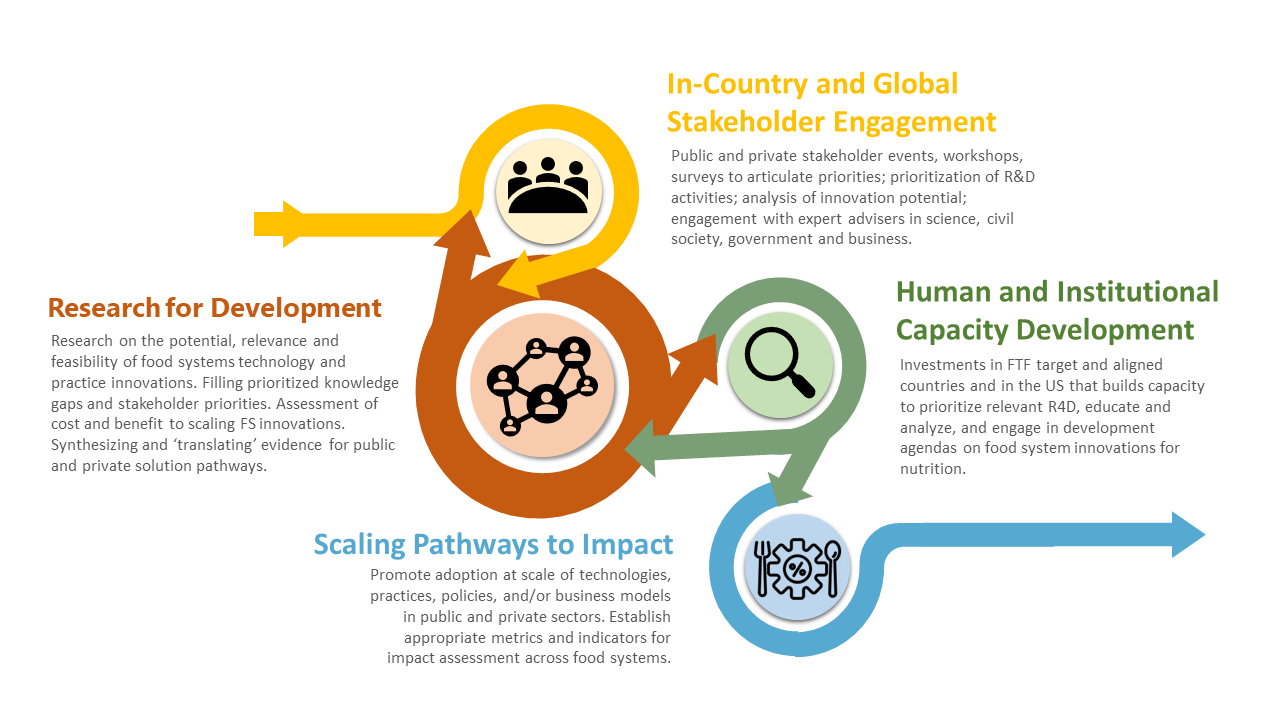Our Work
The FSN-IL supports USAID Global Food Security Strategy’s objective of securing a “well-nourished population, especially among women and children” by generating new evidence and translating existing evidence to harness novel technologies and innovations to:
Reduce food loss and waste
Improve access to nutrient-rich foods
Enhance food safety
FSN-IL’s Strategic Plan
The figure below summarizes the interlocking nature of our principal activities and feedback loops, their cumulative effects, and the overall process by which the generation of novel results will support scaling of nutrition-sensitive food system (FS) solutions moving forward.

To achieve our objectives, the FSN-IL will:
- Facilitate Research for Development (R4D) and human and institutional capacity development (HICD) activities to support the uptake of best practices and innovative nutrition-sensitive food system technologies.
- Engage with diverse categories of stakeholders at multiple levels to disseminate and transfer these findings.
- Deliver competed and commissioned awards to identify, test, transfer, and upscale potential solutions.
- Deliver innovation challenges and prizes for crowd-sourced innovations.
- Promote innovation while ensuring rigor along the length of the discovery-to-impact process relating to novel technologies, products, and practices.
The management entity will implement an impactful set of workstreams with consortium partners that fully engages the wider academic, business, and policy communities at global and regional levels, while ensuring close engagement with the priorities and interests of target geographies. As the 2022 U.S Government’s Global Food Security Research Strategy report mentions,
“Feed the Future will leverage key partnerships with U.S. universities, including Minority Serving Institutions (MSIs) and those engaging with Feed the Future Innovation Labs; U.S. private business and nonprofit sectors; commodity groups; international agricultural research centers (e.g., CGIAR); and national research and extension programs in partner countries, including government, universities, civil society, and private-sector partners.” p. 15
